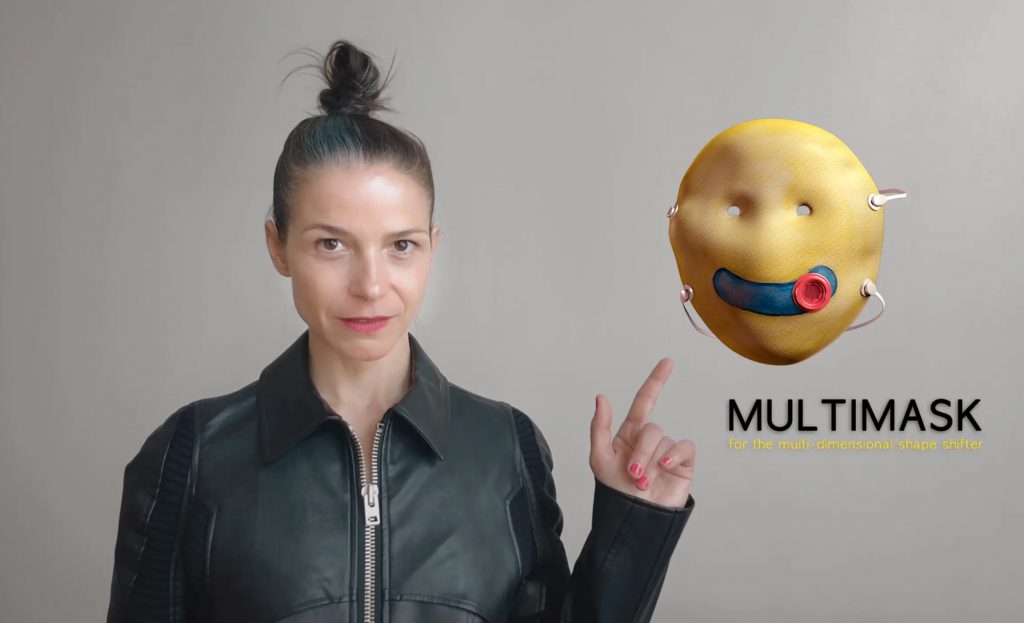
Ana Prvački, Multimask, 2020, video still
Ana Prvački, Multimask, 2020, video still

“Can one transform the language of the pandemic? Can social media stimulate particular glands and hormones or mobilize one’s fight-or-flight response? Can art function like an instant facelift mask?”
—Ana Prvački
Ana Prvački’s abiding fascination with systems of life and forms of cultural transaction—wellness culture, healing technologies, beauty regimens, the language of advertising and start-ups—combined with her meticulous research into protocols of human behavior and emotions resulted in the creation of three unique videos commissioned for the Biennale. Made exclusively for online distribution, each succinct video addresses a different topic that has come to define contemporary culture in Korea and beyond, ranging from environmental matters to movement and meditation exercises. In her videos, she assumes the role of a storyteller offering narrative, in her words, as “a balm for trauma, with its restorative and relaxing meditation capacity.” Gently and humorously, she reflects on the unprecedented global alienation that has attended the COVID-19 pandemic.
Multimask, the first of the series (all works 2020), integrates the body into a shifting reality through a speculative gadget: a mask that riffs on the face coverings made ubiquitous by the outbreak. Designed to perform the triple role of personal protective equipment, beauty mask, and consciousness-transforming device for sensory deprivation, the multimask intends to increase self-awareness. Energetic Tickle proposes the titular animated gesture as a means for interaction and behavioral reorientation as instructed in collaboration with an accordion player. Drawing from hydrofeminist writing, climate change, sea goddess myths, bodily porosity, and notions on liquidity, The Splash Zone addresses the omnipresent fear in our slowly recovering society through the notion known in ecological sciences as the supralittoral zone, a generative space of creativity and anxiety.
Trained in theater, Prvački’s use of light, props, and 3D rendering manifests her deeply-held interest in masks and prosthetics in newly contrived forms of digital mise-en-scène. These videos, completed during quarantine with the support of family members, are intended as intriguing, thought-provoking vignettes. They encourage exchange and derring-do by alleviating suffering in daily life and, most importantly, attempt the unthinkable: the subversion of social anxiety through the comedic potential of faux pas and the balancing of humor and serious matters of life during pandemic-induced alienation and social distancing.
Ana Prvački, Multimask, 2020, video still